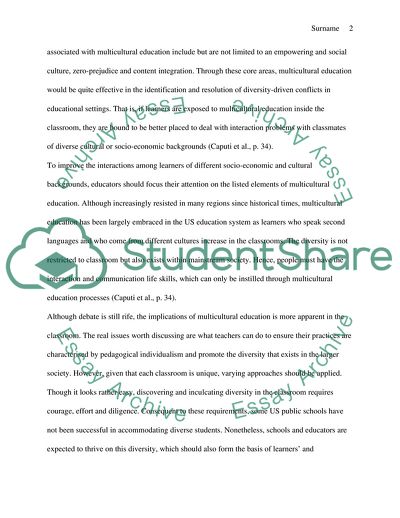Cite this document
(Multiculturalism as an Implication for Educating Approaches Term Paper Example | Topics and Well Written Essays - 1250 words, n.d.)
Multiculturalism as an Implication for Educating Approaches Term Paper Example | Topics and Well Written Essays - 1250 words. https://studentshare.org/education/1835741-multiculturalism
Multiculturalism as an Implication for Educating Approaches Term Paper Example | Topics and Well Written Essays - 1250 words. https://studentshare.org/education/1835741-multiculturalism
(Multiculturalism As an Implication for Educating Approaches Term Paper Example | Topics and Well Written Essays - 1250 Words)
Multiculturalism As an Implication for Educating Approaches Term Paper Example | Topics and Well Written Essays - 1250 Words. https://studentshare.org/education/1835741-multiculturalism.
Multiculturalism As an Implication for Educating Approaches Term Paper Example | Topics and Well Written Essays - 1250 Words. https://studentshare.org/education/1835741-multiculturalism.
“Multiculturalism As an Implication for Educating Approaches Term Paper Example | Topics and Well Written Essays - 1250 Words”. https://studentshare.org/education/1835741-multiculturalism.


